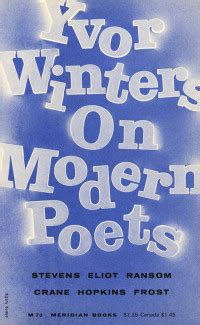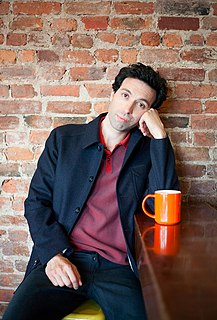A Quote by Vikram Seth
You have to learn a few things, which you do along the way, but basically, poetry is a matter of the ear. Iambic pentameters or what constitutes a stanza comes naturally - your ears will know.
Related Quotes
My third day playing saxophone, I was in front of a congregation. I still didn't know the names of all the notes. I was playing by ear, following along, but it was such an encouraging environment, I couldn't fail. It was all, 'Yeah baby, you sound real good' no matter what you play. It was a great way to learn.
Poetry has an indirect way of hinting at things. Poetry is feminine. Prose is masculine. Prose, the very structure of it, is logical; poetry is basically illogical. Prose has to be clear-cut; poetry has to be vague - that's its beauty, its quality. Prose simply says what it says; poetry says many things. Prose is needed in the day-to-day world, in the marketplace. But whenever something of the heart has to be said, prose is always found inadequate - one has to fall back to poetry.
There's this biological association, when you do this movement, these things happen, and you're basically trying to rewire this 4-billion-year-old reflexive circuitry, which for me can be challenging if I don't really focus. It's the one of the few times as an actor where you are basically showing something with your body and your face that's completely different than what's going on in your mind.
I think the media in America have been absolutely fantastic about the rise of Trump, they've kept a firm eye on the ball: this constitutes democracy, this constitutes transparency, this constitutes fairness, this constitutes the way to behave in a civic society, this constitutes fascism, this constitutes authoritarianism. They're drawing that line, and they're calling him out every time. That's really what needs to happen, and you just have to do that.
When you think intensely and beautifully, something happens. That something is called poetry. If you think that way and speak at the same time, poetry gets in your mouth. If people hear you, it gets in their ears. If you think that way and write at the same time, then poetry gets written. But poetry exists in any case. The question is only: are you going to take part, and if so, how?
Your face will freeze like that, you know, Kat," Raffin said helpfully to Katsa. "Maybe I should rearrange your face, Raff," said Katsa. "I should like smaller ears," Raffin offered. "Prince Raffin has nice, handsome ears," Helda said, not looking up from her knitting. "As will his children. Your children will have no ears at all, My Lady," she said sternly to Katsa. Katsa stared back at her, flabbergasted. "I believe it's more that her ears won't have children," began Raffin, "which, you'll agree, sounds much less—
To succeed in this new world, we will have to learn, first, who we are. Few people, even highly successful people, can answer the questions, Do you know what you're good at? Do you know what you need to learn so that you get the full benefit of your strengths? Few have even asked themselves these questions.
I've been naturally quick at learning things, and I learn by doing things, so if I sit beside someone who is actively doing something, I look at how they do it and absorb the way in which they do something and find my own comfortable way of reimagining that, or using certain techniques in my own way.






































